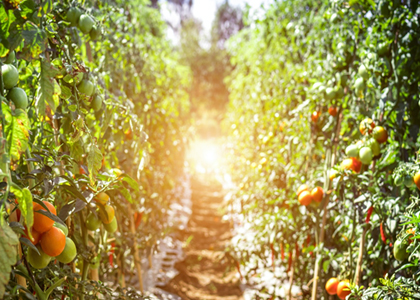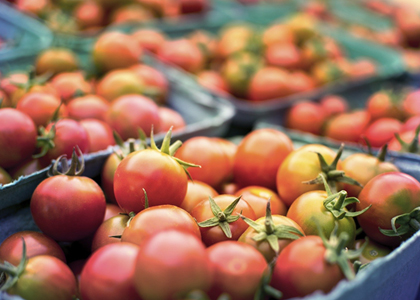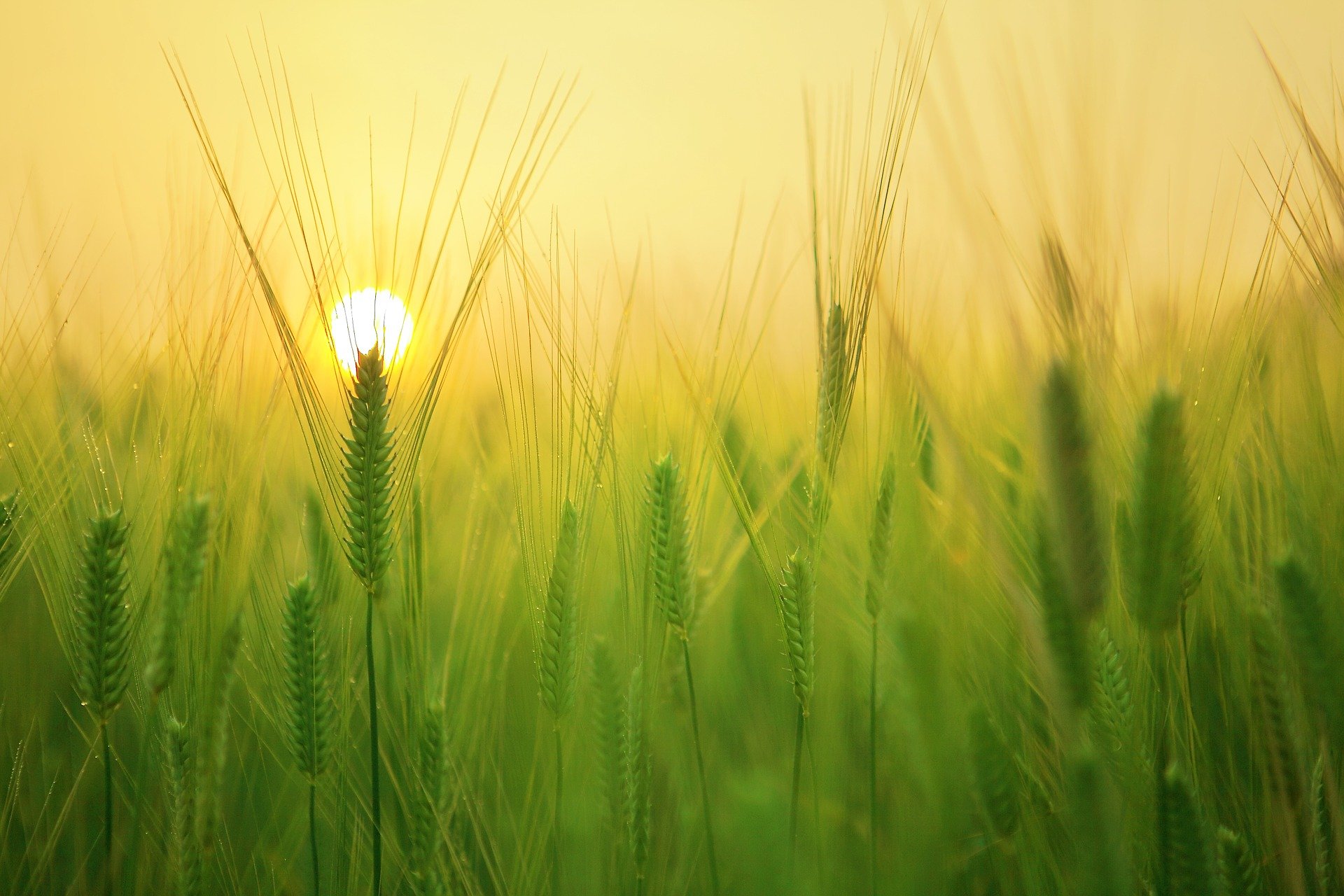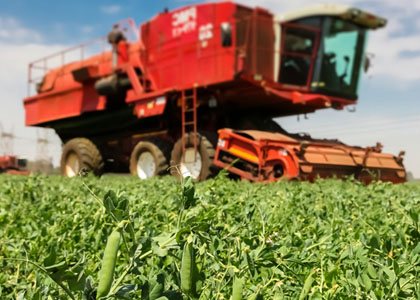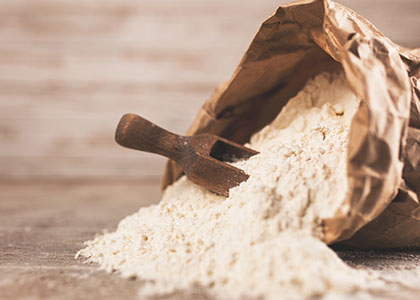Home / Blog / Does it make sense for your agri business to invest in organic farming?
SUMMARY
Within the GCC we are witnessing an increase in demand for organically farmed products. This is not only due to a growing awareness among consumers for healthier foods, but also due to rising incomes where customers can afford to pay for quality. With improved farming practices that make organic yields more robust, the wider GCC and Saudi Arabia particularly, are committing to increasing cultivation areas for organic agriculture.
The Kingdom currently has a functioning but small organic farming segment. The country is hoping to expand it exponentially. In the last few years alone, the government has heavily invested in organic practices as it has a long-term view of agricultural sustainability that preserve the Kingdom’s water resources.
Backed by aggressive awareness campaigns, marketing strategies, and institutional and legal frameworks directed and led by the government, it makes sense for agricultural businesses like yours to consider investing in the sector.
In this article we discuss some of the pros, cons and challenges still being faced by organic agriculture in the country, so that you can make an informed decision.
INDEX
Organic farming in Saudi Arabia
- Growing the right organic crops
- Main markets for organic products
- Benefits of organic agriculture to farmers and consumers
- Challenges
- Limited reach
DOES IT MAKE SENSE FOR YOUR AGRI BUSINESS TO INVEST IN ORGANIC FARMING?

Organic farming is a production management system that promotes the sustainability of agricultural ecosystems and growth of healthy foods. As a closed farm system, its main objective is to conserve natural resources: soil, water, and biodiversity. It works to emphasize the use of on-farm inputs and encourages biological processes to increase the natural availability of nutrients.
Soil management is a central part of any organic farming system, and the aim is to maximize its fertility over time. By utilizing the mutual interdependence of habitats – soil, plants, animals, and human beings, organic processes recycle crop residue and animal and green manure to return it to the land. Synthetic fertilizers and chemical pesticides therefore are completely excluded from agricultural processes as pest and weed control are accomplished through natural means.
In order to ensure the integrity of organic produce, farmers also have to comply with strict standards and regulations. Organic farms are, therefore, inspected and certified, where regulations are consistently monitored by national food safety authorities. These regulatory bodies set standardized criteria for the use of a special “seal of approval” labeling system to visibly differentiate goods that are produced in compliance with organic methodologies.
Organic farming in Saudi Arabia
The demand for healthy food, grown through sustainable farming methods, is on a rise globally. Within the Kingdom as well, organic products are becoming increasingly popular and are being seen as a part of regular food sales. In fact, there are now over 110 committed organic farms in Saudi Arabia. This is largely because in 2017, the Ministry of Environment, Water and Agriculture had begun designing strategies to support the development of organic farming across the Kingdom. By 2019, the government had allocated SR 1,617,831 (USD 431,000) as a test run that supported organic production in the country.
Earlier this year, there has been an increase in commitment through a SR750 million (USD 200 million) nation-wide organic farming action plan that aims to build institutional capacities to help the Kingdom shift towards organic agriculture.
Seen as a positive step, the move seeks to address the country’s nutritional needs, public health and environment related issues, whilst continuing to strive towards its food self-sufficiency and agricultural sustainability goals.
What you need to know
It goes without saying that the organic sector in Saudi Arabia is young and dynamic with many opportunities for growth. Whilst the government is making considerable efforts to support farming enterprises like yours in making a shift towards organic agriculture, it pays to be well informed about the pros, cons, and expectations from the enterprise.
Here are some things you should consider:
- Growing the right organic crops

Given the weather conditions in Saudi, as well as the scarcity of natural water resources, the most important organic crops in the Kingdom are vegetables, particularly tomatoes, eggplants, cucumbers, and onions, and fruits, such as citrus fruits, dates, olives, and grapes.
Organic vegetables are produced both in open fields and under controlled conditions (i.e. polytunnels and greenhouses). The latter style of production is particularly common for crops like tomatoes, cucumbers, and eggplants. Legumes are mainly cultivated as part of a sound crop rotation. Fallow land is either included in crop rotations or constitutes converted production areas for upcoming cultivation.
Amongst fruits, date palms are of major importance in Saudi Arabia. Their production is distributed throughout the country. Alfalfa is the major organic forage crop. Organic cereal production has little significance compared to conventional agriculture, whilst only a handful of farmers grow organic barley, wheat, sorghum, and corn.
Unlike European countries, the choice of crops that can organically be grown in the country is limited. If you are considering a shift to organic farming, you need to engage in a detail study of what can be grown in your region, as well as undertake a realistic cost and supply chain analysis of deliverables.
- Main markets for organic products
As a farming business, it is important that you consider the opportunity costs of moving away from traditional agriculture. Whilst organic produce is gaining popularity in the Kingdom, at present only the country’s larger urban areas are its main consumption centers. As the central regions of the country have the highest collection of organic farms, the majority of specialized organic shops, and supermarkets with available selections are located in cities like Riyadh, Dammam, Al Khobar, and Jeddah.
By and large, markets for organic produce are small, fragmented, and often personalized, where limited and seasonal supplies make it difficult to establish continuous and reliable supply chains with traders and retailers. Perishable crops particularly, are sold predominantly within the production region through the local markets or at the farm gate.
This is an important aspect for you to consider. Unless you secure a direct dealership with a leading national organic retailer, your market reach will be limited, and you will not be able to enjoy any real kind of profitability from the enterprise.

- Benefits of organic agriculture to farmers and consumers
Whilst you need to look at numbers and profit margins, the fact of the matter is that the benefits of organic agriculture are not confined to business opportunities alone. In addition to market considerations, organic agriculture is environmentally friendly and protects the Kingdom’s valuable resources by strengthening soil fertility, biodiversity, and other ecosystem services. Listed below are additional advantages of organic farming for agricultural enterprises like yours:
- Water sustainability: Research from the world over has repeatedly shown that the impact of organic farming on water availability and quality is remarkable. Owing to an improved amalgamation of organic matter, the water-holding capacity of the soil structure improves considerably. This leads to a reduced need for irrigation water compared to intensive conventional agriculture. In practice, organic farming tends to substitute efficient drip irrigation with up to 80-90% water-use efficiency, and 50-60% water use efficiency for widespread center pivot sprinkler irrigation systems.
In Saudi Arabia, agriculture is the largest consumer of water. As of now, as much as 80% of its non-replenishable fossil water has already been consumed. Shifting to organic farming can help the country reduce its dependence on water by helping farmers increase their production without burdening the country’s scarce water resources.
- Enhanced yields: As organic agriculture relies on a closed-farm cycle, it works to strengthen and improve soil-plant-animal systems. Crop residues, and green and animal manure are reused on site to promote biotic abundance, compost richness, and healthy soil carbons. Compared to conventional farms, organic farm sites also offer lower variabilities in relation to crop yields and quality. This translates into better estimates on crop produce.
- Cost saving from reduced inputs: As all organic waste is reused on site in an organic farm, there is little, to no wastage or dependance on additional agricultural inputs.

- Improved animal health: Synthetic fertilizers and pesticides introduce artificial chemicals to the entire environment which can severely impact both animal and human health. Organic agriculture is reliant on ecosystem support from natural ingredients. In comparison to traditional farming, organic agriculture methods offer clear benefits for human consumption. As organic agriculture includes fewer chemicals, pesticides, antibiotics, and hormones (in the case of livestock production) it is safer for humans. Additionally, organic production trends help conserve fossil fuels as well as water and therefore are a more sustainable way to farm.
It needs to be said here however, that due to the limited availability of organic fodder, organic animal husbandry in Saudi is currently limited to a very small number of farms. Its scope for expansion is subject to a lot of international sourcing and support, which can be very costly for smaller-scaled enterprises.
- Increased soil fertility: One of the fundamental principles of organic farming is to manage soil organic carbon to increase soil health. Because the use of synthetic fertilizers is prohibited, organic producers increase soil fertility by incorporating manure or compost into the soil, leading to the growth and activity of beneficial microorganisms, fungi, and earthworms. These elements provide stability to the soil, which reduces erosion, protects against soil compaction and improves aeration, water infiltration and water-holding capacity. It also serves as a reserve for nutrients essential to plant growth including nitrogen, phosphorus and sulfur, and forms the base of the soil food web, providing a foundation for all soil life. Soils with high organic carbon also hold carbon stores for long periods of time, contributing to global climate change mitigation. Additionally, improved crop rotation and permanent soil cover prevent erosion and soil degradation and hence improve the water-retaining capacity of arable land.
- Improved water quality: An increase in soil health on organically managed farms can also lead to improved water quality. Organic farming prevents water pollution resulting from the use of synthetic fertilizers and pesticides, which is common in agro-industrial farming. As a primary non-point pollutant to the Kingdom’s waterways and land, nitrate runoff from mineral fertilizers applied in conventional agriculture is of particular concern as it is a driver of eutrophication, leading to the formation of hypoxic “dead zones” devoid of oxygen and unable to support life. Organic practices such as the use of diverse crop sequences, cover crops and animal manure for fertilization, increase soil’s carbon capacities, helping it retain water and nutrients. With less water drainage and nutrient loss than their conventional counterparts, organic farms preserve the quality of land and water.
- Healthier food option: In addition to its benefits to soils and crops, organic produce is healthier for human consumption. It is free from pesticides, fertilizers and chemicals, and is also not genetically modified or altered. Organic agriculture grows high quality products that reduce health risks.
- Consumer and market challenges
Whilst the Kingdom has a growing population of consumers with strong purchasing power, stakeholders interested in collaboration and government bodies willing to support organic agriculture, there are still many challenges faced by the sector.
Compared to other countries, the Saudi organic market is still small and a long way from successful development. The sector needs to grow a coherent “trustworthy value concept” that is fully understood by consumers and is implemented across all segments of the value chain – from production, trading, and processing to retailing and consumers.
At present the optimal implementation of such a program is associated with challenges relating to awareness, quality marketing, on-farm research and extension, and access to organic inputs.
- Awareness: At present there is not enough awareness about organic produce in the country to drive a planned movement towards organic agriculture. The Saudi National Organic Label is not a widely recognized entity among the general public. The linkage between the ‘organic label’ and products still needs to be strengthened. A strong and coherent message focusing primarily on the health benefits of organic foods needs to be directed towards the wider population to help establish organic foods as part of a modern, healthy lifestyle. Only then can there be consistent demand that directs a broader movement to organic practices.

- Quality Marketing: The current organic market is very small. An expansion of the sector depends largely on how consumers perceive the quality of organic products that are being offered in marketplaces. In this respect, not only taste, but also various external factors relating to appearance (shape and color) and presentation (packaging and labeling) will determine the success of the produce. Actors from the sector need to be engaged to develop marketing concepts that help customers perceive a clear value addition in consuming organic products.
- Existing information and research: In recent years, the government’s Organic Farming Project has carried out important capacity-development activities in the area of organic extension. However, since these services are not adequately available throughout the Kingdom, there is a shortage of organic agricultural support that is appropriate to the key crops grown in each region.
- Access to organic inputs: Despite heavy government investment in the sector, access to organic inputs is still limited. The sector needs to develop functional linkages between input producers, input traders, and the National Organic Research and Development Centers.
- Limited reach
There is no denying that Saudi Arabia’s natural and organic food market is expected to witness significant growth in the coming years. Rising cases of lifestyle-related diseases along with growing awareness regarding the benefits of chemical and pesticide-free food among the population, particularly among the youth, are some of the major drivers behind the growing appetite for naturally processed and organic food in the country. In fact, the Saudi Organic Food Market is projected to grow at a CAGR of 15.9% from 2020 to 2025.

However, at present, organic farming is not a prominent trend in the country. More than 80% of the organic produce currently available is being imported from European and Western countries. It is expensive and not available to broad swathes of the population, casting it as an inaccessible and wasteful luxury.
Major obstacles that hamper better commercial relations between organic producers and supermarkets are, on the one hand, the small and inconstant production volumes, and, on the other, the relatively high fees charged by supermarkets for shelf display and storage. The latter is especially critical for small and medium-sized producers, who are not able to compensate for these fees with the revenues that they receive from such sales, particularly as they are in a weak position to negotiate favorable price and payment conditions.
Keeping an open mind
From a market-development perspective, Saudi Arabia’s organic sector is at a stage where a fast expansion of organic sales is expected in the coming years. The country has a growing educated population where consumers with strong purchasing power are interested in healthy foods. Similarly, stakeholders are investing in the expansion of organic businesses. Stimulated by governmental programs that provide incentive and sustainable support, the organic-sector sales portfolios are set to grow. It makes sense, therefore, for farming organizations like yours to keep an open mind, do their research and seek consultants that can help them capitalize on these developments in the coming years.
For more information on how agribusinesses transition to organic farming practices and business models, get in touch with us.



